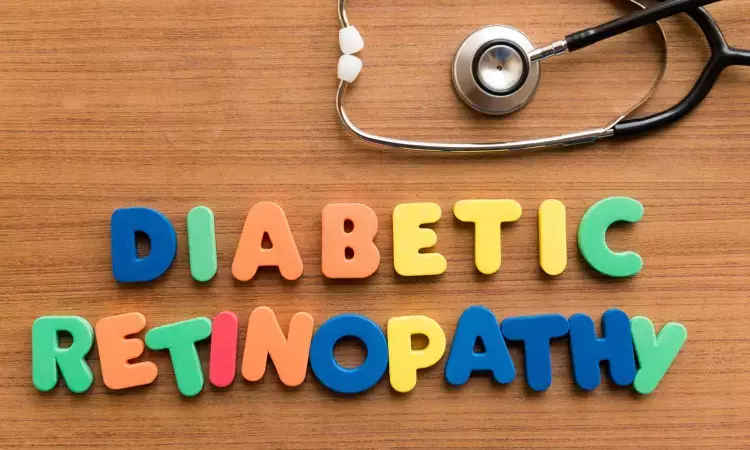- Home
- Medical news & Guidelines
- Anesthesiology
- Cardiology and CTVS
- Critical Care
- Dentistry
- Dermatology
- Diabetes and Endocrinology
- ENT
- Gastroenterology
- Medicine
- Nephrology
- Neurology
- Obstretics-Gynaecology
- Oncology
- Ophthalmology
- Orthopaedics
- Pediatrics-Neonatology
- Psychiatry
- Pulmonology
- Radiology
- Surgery
- Urology
- Laboratory Medicine
- Diet
- Nursing
- Paramedical
- Physiotherapy
- Health news
- Fact Check
- Bone Health Fact Check
- Brain Health Fact Check
- Cancer Related Fact Check
- Child Care Fact Check
- Dental and oral health fact check
- Diabetes and metabolic health fact check
- Diet and Nutrition Fact Check
- Eye and ENT Care Fact Check
- Fitness fact check
- Gut health fact check
- Heart health fact check
- Kidney health fact check
- Medical education fact check
- Men's health fact check
- Respiratory fact check
- Skin and hair care fact check
- Vaccine and Immunization fact check
- Women's health fact check
- AYUSH
- State News
- Andaman and Nicobar Islands
- Andhra Pradesh
- Arunachal Pradesh
- Assam
- Bihar
- Chandigarh
- Chattisgarh
- Dadra and Nagar Haveli
- Daman and Diu
- Delhi
- Goa
- Gujarat
- Haryana
- Himachal Pradesh
- Jammu & Kashmir
- Jharkhand
- Karnataka
- Kerala
- Ladakh
- Lakshadweep
- Madhya Pradesh
- Maharashtra
- Manipur
- Meghalaya
- Mizoram
- Nagaland
- Odisha
- Puducherry
- Punjab
- Rajasthan
- Sikkim
- Tamil Nadu
- Telangana
- Tripura
- Uttar Pradesh
- Uttrakhand
- West Bengal
- Medical Education
- Industry
Hypoglycemia may contributes to eye damage and vision loss in diabetic retinopathy; experimental drug may help treat condition: Study

In a new National Institutes of Health-funded study led by scientists at the Wilmer Eye Institute, Johns Hopkins Medicine researchers say they have determined that low blood sugar, or hypoglycemia, may promote a breakdown of the blood-retinal barrier, an important boundary that regulates the flow of nutrients, waste and water in and out of the retina.
The research, which investigated the phenomenon in diabetic mice, provides insights into the origin of diabetic retinopathy, specifically in patients with episodes of hypoglycemia. Diabetic retinopathy, a severe complication of both type 1 and type 2 diabetes, can cause permanent vision damage if left untreated.
The full study, published in Science Translational Medicine on April 30, explains that a specific protein known as hypoxia-inducible factor (HIF) accumulates in certain cells in the retina during periods of low blood sugar.
HIF has been implicated in diabetic retinopathy and other eye diseases before. The protein can trigger a chain reaction, switching on overproduction of other proteins which lead to overgrowth and leakage of blood vessels in the retina. Now, scientists have found that HIF is a player in how the blood-retinal barrier breaks down during hypoglycemia.
Researchers tested HIF’s role in hypoglycemia by inducing periods of low blood sugar in mice with and without diabetes. Their experiments showed that mice with diabetes had higher levels of HIF during hypoglycemia, enough to promote the breakdown of the blood-retinal barrier and cause leakage in retinal blood vessels, while mice without diabetes did not experience higher levels of HIF. This breakdown in diabetic retinopathy contributes to irreversible damage to the retina and vision loss.
The team investigated further by testing an experimental drug known as 32-134D, which inhibits the HIF protein. Some diabetic mice received an injection of 32-134D prior to induced episodes of low blood sugar, and researchers observed lower HIF levels, in turn preventing the expression of proteins that promote the breakdown of the blood-retinal barrier and blood vessel leakage.
“These studies help explain why patients with diabetes who are initially started on tight glucose control, the cornerstone of diabetic management, or those who have high glycemic variability (transient episodes of very low-followed by very high-serum glucose levels), experience worsening of their diabetic eye disease,” says corresponding author Akrit Sodhi, M.D., Ph.D., associate professor of ophthalmology and the Branna and Irving Sisenwein Professor of Ophthalmology at the Johns Hopkins University School of Medicine and the Wilmer Eye Institute. “Our findings underscore why therapies targeting HIF will be an effective approach to prevent or treat diabetic retinopathy.”
Researchers are planning future studies on HIF, the breakdown of the blood-retinal barrier and 32-134D, and hope to conduct clinical studies of 32-134D in patients with diabetic retinopathy.
Reference:
Chuanyu Guo et al. ,Hypoglycemia promotes inner blood-retinal barrier breakdown and retinal vascular leakage in diabetic mice.Sci. Transl. Med.17,eadq5355(2025).DOI:10.1126/scitranslmed.adq5355.
Dr Kamal Kant Kohli-MBBS, DTCD- a chest specialist with more than 30 years of practice and a flair for writing clinical articles, Dr Kamal Kant Kohli joined Medical Dialogues as a Chief Editor of Medical News. Besides writing articles, as an editor, he proofreads and verifies all the medical content published on Medical Dialogues including those coming from journals, studies,medical conferences,guidelines etc. Email: drkohli@medicaldialogues.in. Contact no. 011-43720751


